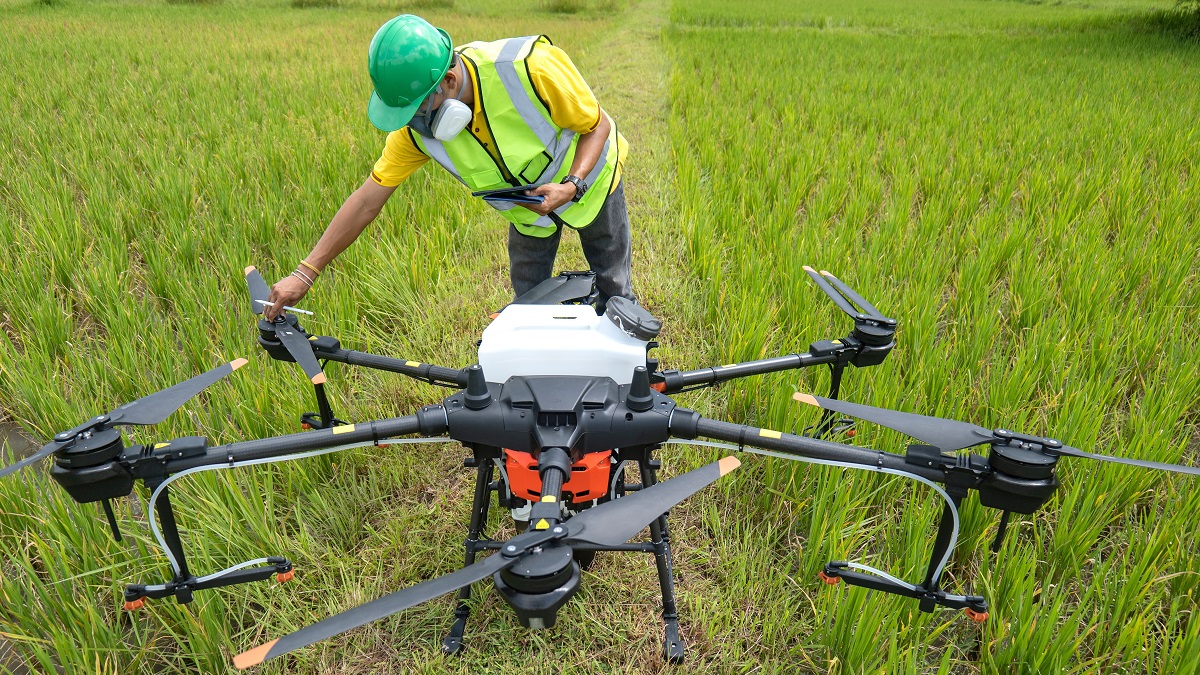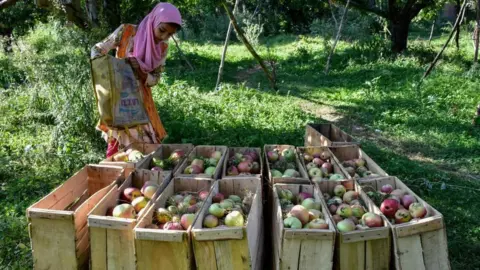Cultivating Change: The Impact of Tech Advancement on Agriculture in Africa
The introduction of technology in agriculture has brought about a paradigm shift in the way farming is done. From precision farming techniques to data-driven decision making, technology has empowered African farmers to increase productivity, improve efficiency, and enhance profitability. This blog post will explore the role of technology in revolutionizing agricultural entrepreneurship in Africa, highlighting the key areas where technology has made a significant impact. One of the key areas where technology has transformed agricultural entrepreneurship in Africa is in the realm of farm management. Traditionally, farmers relied on manual methods and their own intuition to manage their farms. However, with the advent of technology, farmers now have access to a wide range of tools and systems that enable them to monitor and manage their farms more effectively. One such tool is the use of drones for aerial imaging and crop monitoring. Drones equipped with high-resolution cameras can capture detailed images of crops, allowing farmers to identify areas of stress or disease. This information can then be used to make informed decisions about the application of fertilizers or pesticides, ultimately leading to higher crop yields and reduced costs.
In addition to drones, farmers in Africa are also utilizing satellite imagery and GPS technology to improve farm management. Satellite imagery provides farmers with real-time data on weather patterns, soil moisture levels, and crop health. This information allows farmers to make timely decisions about irrigation, planting, and harvesting, resulting in more efficient use of resources and increased profitability.
Furthermore, technology has also revolutionized the way farmers access markets and sell their produce. In the past, farmers often faced challenges in finding buyers for their products and negotiating fair prices. However, with the rise of e-commerce platforms and mobile payment systems, farmers can now connect directly with buyers and sell their produce online.
For example, platforms like Nile and Twiga Foods have emerged as successful online marketplaces where farmers can list their products and connect with buyers. These platforms not only provide farmers with a wider market reach but also ensure fair pricing and timely payments. This has significantly reduced the dependence on middlemen and increased the profitability of agricultural entrepreneurship in Africa.
Overall, the introduction of technology in agriculture has had a transformative impact on agricultural entrepreneurship in Africa. From farm management tools like drones and satellite imagery to online marketplaces and mobile payment systems, technology has empowered farmers to make data-driven decisions, access wider markets, and increase profitability. As technology continues to advance, the potential for further innovation and growth in the agricultural sector in Africa is immense.
Climate Change and The Impact on The Environment
Climate change refers to long-term shifts in temperature and weather patterns, primarily caused by human activities such as burning fossil fuels, deforestation, and industrial processes. These activities release greenhouse gases into the atmosphere, trapping heat and leading to global warming. The consequences of climate change are far-reaching and affect various aspects of the environment, including ecosystems, weather patterns, and natural resources.
One of the most significant impacts of climate change is the loss of biodiversity. As temperatures rise, many species struggle to adapt and face the risk of extinction. This loss of biodiversity not only disrupts ecosystems but also affects human livelihoods, as many communities rely on natural resources for food, medicine, and economic activities.
Furthermore, climate change is altering weather patterns, leading to more frequent and intense extreme weather events. Heatwaves, droughts, floods, and hurricanes are becoming more common, causing widespread damage to infrastructure, agriculture, and human lives. These extreme weather events also exacerbate existing social and economic inequalities, as marginalized communities often bear the brunt of their impacts.
In addition to these immediate impacts, climate change also poses long-term risks to the availability of essential resources. For example, rising sea levels threaten coastal communities and freshwater supplies, as saltwater intrusion contaminates groundwater sources. This scarcity of water resources can lead to conflicts over access and exacerbate social tensions. Addressing climate change requires a comprehensive approach that includes both mitigation and adaptation strategies. Mitigation involves reducing greenhouse gas emissions through transitioning to renewable energy sources, improving energy efficiency, and implementing sustainable land-use practices. Adaptation focuses on building resilience to the impacts of climate change, such as developing early warning systems, implementing flood protection measures, and promoting sustainable agriculture.
In conclusion, climate change is a pressing issue that demands immediate action. Its impacts on the environment are wide-ranging and affect ecosystems, weather patterns, and essential resources. By implementing both mitigation and adaptation strategies, we can work towards a more sustainable future and mitigate the worst effects of climate change. Not only does technology provide access to information and knowledge, but it also helps overcome the challenges faced by African farmers in disseminating this information to remote areas. In many rural communities, access to internet connectivity is limited or even non-existent. However, innovative solutions have emerged to bridge this digital divide. For instance, organizations have developed mobile applications that can be accessed offline, allowing farmers to download relevant information and resources when they have access to the internet and then access them later when offline. These applications provide step-by-step guides, instructional videos, and interactive tools that can be used even without an internet connection.
In addition, initiatives have been launched to establish community knowledge centers in rural areas. These centers are equipped with computers, internet connectivity, and trained personnel who can assist farmers in accessing and utilizing the available digital resources. They serve as hubs for information dissemination, training, and capacity building, ensuring that even farmers in remote areas can benefit from the wealth of knowledge and information available. Moreover, partnerships between governments, non-governmental organizations, and private sector companies have been formed to deploy innovative solutions such as low-cost satellite internet connectivity and mobile network expansion. These initiatives aim to extend the reach of internet connectivity to remote areas, enabling farmers to access real-time information and connect with experts and fellow farmers. By addressing the issue of access to information and knowledge, technology is empowering African farmers to make informed decisions, adopt modern farming techniques, and improve their overall productivity. This not only has economic benefits for the farmers themselves but also contributes to food security, poverty alleviation, and sustainable development in the region.
Precision farming and smart agriculture have revolutionized the agricultural industry in Africa, providing farmers with advanced tools and techniques to optimize their farming practices. These technologies harness the power of sensors, drones, and satellite imagery to collect valuable data about various aspects of farming, including soil conditions, crop health, and water usage. By utilizing this data, farmers can make informed decisions about irrigation, fertilization, and pest control, leading to more efficient and sustainable farming practices. For instance, sensors installed in the fields can continuously monitor soil moisture levels and automatically trigger irrigation systems when necessary. This not only conserves water resources but also ensures that crops receive the precise amount of water they need at the right time, promoting optimal growth and yield. Moreover, drones equipped with high-resolution cameras and advanced sensors can be deployed to monitor crops from above. These drones can detect early signs of crop diseases and pest infestations, enabling farmers to take immediate action and prevent the spread of these threats. By identifying and addressing these issues early on, farmers can minimize crop losses and maximize their overall productivity. The benefits of precision farming and smart agriculture extend beyond individual farms. These technologies have the potential to significantly increase overall agricultural productivity in Africa while reducing resource wastage. By optimizing resource allocation and minimizing environmental impact, precision farming and smart agriculture are paving the way for sustainable and efficient farming practices across the continent. In addition to improving productivity and resource management, precision farming and smart agriculture also offer economic benefits to farmers. By using data-driven decision-making, farmers can optimize their inputs, reduce costs, and increase their profitability. For example, by accurately determining the amount of fertilizer needed based on soil analysis, farmers can avoid over-application and save on input costs. Similarly, by precisely targeting pest control measures, farmers can minimize the use of pesticides, reducing both environmental impact and expenses. Furthermore, the implementation of precision farming and smart agriculture technologies in Africa has the potential to attract investment and drive innovation in the agricultural sector. As these technologies continue to evolve and become more accessible, they create opportunities for entrepreneurs, researchers, and technology providers to develop and deploy innovative solutions tailored to the specific needs of African farmers. In conclusion, precision farming and smart agriculture have transformed the way farming is done in Africa. By leveraging advanced technologies such as sensors, drones, and satellite imagery, farmers can collect and analyze data to make data-driven decisions about irrigation, fertilization, and pest control. These technologies not only increase productivity and reduce resource wastage but also offer economic benefits to farmers. Moreover, precision farming and smart agriculture have the potential to attract investment and drive innovation in the agricultural sector, paving the way for a more sustainable and efficient future for African agriculture.
Access to Finance and Markets
Access to finance has always been a major challenge for African farmers and entrepreneurs. Traditional banking systems often fail to reach rural areas, making it difficult for farmers to access credit and investment opportunities. However, technology has disrupted this traditional model and opened up new avenues for financing agri-businesses.
Mobile banking and digital payment systems have enabled farmers to access financial services without the need for a physical bank branch. This has not only made financial transactions more convenient but has also increased financial inclusion for rural communities. Farmers can now access loans, insurance, and savings accounts through their mobile phones, empowering them to invest in their businesses and improve their livelihoods.
In addition to access to finance, technology has also facilitated access to markets for African farmers. Online platforms and mobile applications connect farmers directly with buyers, eliminating the need for intermediaries and ensuring fair prices for their produce. This direct link to markets enables farmers to sell their products at competitive prices and reach a wider customer base.
Furthermore, technology has provided farmers with valuable market information and insights. Through mobile apps and online platforms, farmers can now access real-time market prices, weather forecasts, and demand trends. This information allows farmers to make informed decisions about what crops to grow, when to harvest, and where to sell their produce. By aligning their production with market demand, farmers can optimize their yields and maximize their profits.
Moreover, technology has also enabled farmers to participate in e-commerce platforms and export their products to international markets. Online marketplaces provide African farmers with the opportunity to showcase their unique products to a global audience, breaking down geographical barriers and expanding their customer base beyond their local communities. This not only opens up new revenue streams for farmers but also promotes economic growth and development in rural areas.
Overall, the integration of technology into the agricultural sector has revolutionized access to finance and markets for African farmers. By leveraging mobile banking, digital payment systems, and online platforms, farmers can now overcome traditional barriers and unlock new opportunities for growth and prosperity. With increased access to finance and markets, African farmers are empowered to improve their productivity, increase their incomes, and contribute to the overall development of their communities.
Supply Chain Management
Efficient supply chain management is crucial for the success of any agri-business. However, in many parts of Africa, the lack of proper infrastructure and logistics has hindered the smooth flow of agricultural produce from farms to markets. Technology has emerged as a solution to this challenge, enabling farmers to overcome logistical barriers and streamline their supply chains.
Mobile applications and online platforms have been developed to track and trace agricultural produce from farm to market. These platforms provide real-time information about the location and condition of the produce, ensuring transparency and accountability throughout the supply chain. By optimizing transportation routes and reducing post-harvest losses, technology has improved the overall efficiency of the agricultural supply chain in Africa.
One example of a mobile application that has revolutionized supply chain management in Africa is FarmConnect. This app allows farmers to input data about their produce, such as quantity, quality, and expected harvest date. The app then uses this information to connect farmers with potential buyers, ensuring a direct and efficient link between the farm and the market.
In addition to connecting farmers with buyers, FarmConnect also provides real-time updates on the location of the produce during transportation. This allows farmers to track the progress of their products and ensures that they arrive at the market in optimal condition. By reducing the time and effort required to find buyers and transport produce, FarmConnect has significantly improved the efficiency of the agricultural supply chain in Africa.
Another technology that has transformed supply chain management in Africa is the use of blockchain. Blockchain is a decentralized digital ledger that records transactions across multiple computers. By using blockchain, farmers can create a transparent and immutable record of their produce, from the moment it is harvested to the point of sale.
Blockchain technology ensures that all parties involved in the supply chain have access to the same information, reducing the risk of fraud and improving trust between farmers, buyers, and consumers. Additionally, blockchain allows for easy verification of the origin and quality of agricultural produce, which is particularly important for export markets where strict quality standards must be met.
By implementing blockchain technology, African farmers have been able to gain access to new markets and increase their profitability. The transparency and traceability provided by blockchain have also made it easier for farmers to secure loans and investments, as financial institutions can easily verify the value of their produce.
In conclusion, technology has played a crucial role in improving supply chain management in Africa's agricultural sector. Mobile applications like FarmConnect and blockchain technology have revolutionized the way farmers connect with buyers, track their produce, and ensure transparency and accountability throughout the supply chain. As technology continues to advance, the efficiency of the agricultural supply chain in Africa is expected to further improve, leading to increased productivity and profitability for farmers.
Technology has undoubtedly played a significant role in transforming various industries, and agriculture is no exception. In recent years, we have witnessed remarkable advancements in technology that have revolutionized the way farming is done in Africa. From precision agriculture to the use of drones and artificial intelligence, these technological innovations have the potential to greatly improve agricultural productivity and sustainability in the continent. One of the most notable technological advancements in African agriculture is the use of precision agriculture techniques. Precision agriculture involves the use of GPS, sensors, and other technologies to collect data about soil conditions, weather patterns, and crop health. This data is then analyzed to optimize farming practices, such as irrigation, fertilization, and pest control. By precisely applying resources where they are needed most, farmers can reduce waste, increase yields, and minimize environmental impact. Another area where technology has made significant strides is in the use of drones. Drones equipped with high-resolution cameras and sensors can provide farmers with valuable information about their crops. They can quickly and accurately assess crop health, identify areas of stress or disease, and even monitor livestock. This real-time data allows farmers to take proactive measures to address issues before they become widespread, ultimately leading to higher crop yields and healthier animals. Artificial intelligence (AI) is also playing a crucial role in transforming African agriculture. AI-powered systems can analyze vast amounts of data and provide valuable insights to farmers. For example, AI algorithms can predict weather patterns, allowing farmers to make informed decisions about planting and harvesting times. AI can also help farmers optimize their use of resources by analyzing historical data and making recommendations for optimal irrigation and fertilization schedules. In addition to these specific technological advancements, the increasing availability and affordability of smartphones and internet connectivity in Africa have opened up new opportunities for farmers. Mobile apps and online platforms provide farmers with access to market information, weather forecasts, and expert advice. This enables them to make better-informed decisions and connect with buyers directly, eliminating middlemen and maximizing their profits. However, while technology holds great promise for revolutionizing African agriculture, there are still challenges that need to be addressed. One of the main barriers is the lack of access to technology and digital infrastructure in rural areas. Many farmers still do not have reliable internet access or the necessary skills to fully utilize the available technology. Bridging this digital divide and ensuring that all farmers have equal access to technological advancements will be crucial for the widespread adoption and success of these innovations. In conclusion, technology has the potential to transform African agriculture and empower farmers to overcome challenges and improve their livelihoods. From precision agriculture to drones and artificial intelligence, these technological advancements can increase productivity, reduce waste, and promote sustainable farming practices. However, it is essential to address the digital divide and ensure that all farmers have equal access to these technologies. By harnessing the power of technology, African farmers can unlock their full potential and contribute to the continent's food security and economic growth.
Leave a Comment
We would love to hear your thoughts on the role of technology in revolutionizing agricultural entrepreneurship in Africa. Have you witnessed any technological advancements in your local farming community? How do you think technology can further transform the agricultural sector in Africa? Leave a comment below and join the discussion!

















.jpg)







.png)
